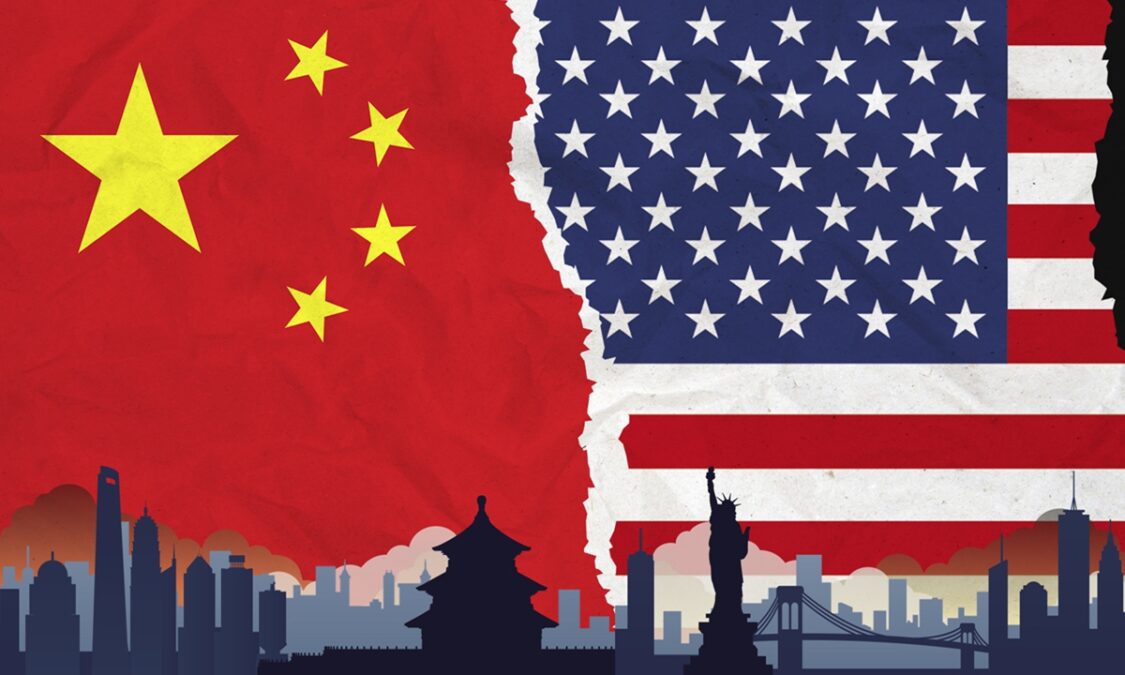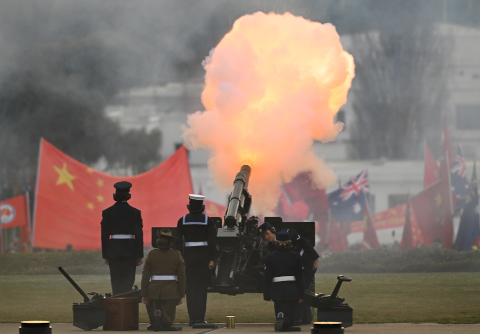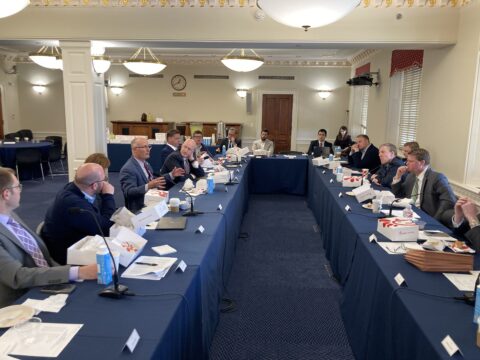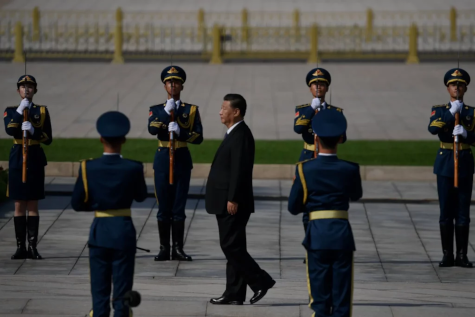
Latest Article: The President Needs to Lead the Cold War on China
June 18, 2024
Executive Summary
America is now in a cold war with the Chinese Communist Party (CCP), and the global economy is ground zero.
The president must lead a strategy to beat the CCP that safeguards the American economy, targets illegal and
threatening economic activity by the CCP, and builds new global economic power centers.
The repressive CCP regime has become adept at weaponizing the People’s Republic of China’s (PRC’s) position in
the global economy to build geoeconomic leverage, fund its military modernization, fuel its global illicit activities,
and wage economic warfare on the U.S. And the U.S. must have a comprehensive strategy to defeat this threat.
The January 2025 presidential transition is an opportunity for the new president to mobilize all elements of U.S.
national power to defend against CCP economic aggression and prepare the American people for economic
warfare. To achieve this, the president must clearly define U.S. end states for this cold war which should include:
- U.S. global interests and the American way of life are secured.
- The CCP’s credibility and ability to exert malign influence have been reduced.
- The CCP is denied the economic security needed to pursue its global security interests.
- The CCP’s aggression, especially in its geographic periphery, is deterred.
- The United States and its network of allies defend the free world.
It is crucial that the president initiate a strategy to defeat the CCP on day one. The president must set the tone by
taking seven immediate actions—many of which will need to happen simultaneously—to set the foundation for
U.S. posture toward the CCP for the next four years.
ACTION 1: Build an NSC to Lead and Win
The president must build a National Security Council (NSC) team that can drive the executive branch to execute
the president’s strategy for economic competition with the PRC. The president should name a Strategic
Competition Coordinator within the NSC to lead a policy team that is responsible for overseeing the president’s
strategy as it pertains to industrial and supply-chain integrity, economic espionage and crimes, critical and
emerging technologies, global economic policy, and economic strategy/plans. In addition, the president should
release a National Security Presidential Directive that establishes an NSC process that reflects economic
competition with the PRC as the president’s priority.
ACTION 2: Deploy a Winning Economic Strategy
The president should release a National Security Decision Directive that issues clear guidance to the bureaucracy,
detailing what the priorities are for U.S. economic competition with the PRC. Core elements of this strategy
should include: 1) securing the American economy through strategic decoupling; 2) degrading the PRC’s ability to
compete economically by deploying the U.S. legal arsenal and developing economic war plans for a wide range of
scenarios; and 3) building new global economic power centers to reduce collective reliance on the CCP.
ACTION 3: Assemble a Team and Develop a Budget
In addition to a strong NSC team, the president will need to be deliberate in building an interagency team
focused on economic competition with the PRC. Staffing key positions in the Department of State, Department of
Defense, Department of Commerce, Department of Treasury, U.S. Trade Representative, and Department of Justice
will be key. In addition, the president will need to take swift action to ensure that the resources needed to compete
are available and seek to shape the Fiscal Year 2026 budget process to reflect the threat from the PRC.
ACTION 4: Safeguard America and Take Targeted Economic Action
The president’s strategy must translate into concrete action. Deliberate action to strategically decouple from
the PRC in critical minerals, biopharmaceuticals, and semiconductors should be prioritized. Action to restrict PRC
investment in the U.S. and American investment going to China is also required. America’s legal arsenal should
be deployed to combat the CCP’s role in the fentanyl crisis, theft of intellectual property, and unfair trade practices.
Lastly, the president must give the order to build an economic plan for the U.S. to go on the offensive—initiating
an economic war-planning process that continues current efforts to deny and degrade the CCP’s economic
advantage but provides the options for escalation during a conflict.
ACTION 5: Forge New Global Coalitions and Reassert U.S. Leadership
The president must reassert U.S. leadership on the world stage by forging new global coalitions. Identifying
U.S. global economic and trade priorities, in the context of economic competition with the PRC, is mandatory to
executing a broader economic strategy to decouple and reduce the United States’ overall risk to CCP influence.
The president should seek to create a Critical Capabilities Compact with partner nations to harmonize export
controls, coordinate investment, and establish Strategic Trade Agreements that reinforce shared supply chains—
efforts that would position America, as well as its partners, for success.
ACTION 6: Build Support in Congress
The president cannot defeat the PRC without enduring support from Congress. Deliberate action should be
taken to gain congressional support for the president’s economic strategy, thus securing the resources and trade
authorities that the president will need to effectively secure the American economy. The president should request
to establish a new Export Control Agency, the head of which is a direct report to the Secretary of State or the
president, similar to the U.S. Trade Representative. The agency’s goal is to better coordinate the U.S. export
regimes with foreign policy and national security objectives.
ACTION 7: Develop a Communications Strategy
The president must gain the support and trust of the American people to execute a strategy to beat the PRC
economically. The president should address the American people directly to identify the threat posed by
the CCP and how it is affecting Americans, identify the U.S. objectives in this fight, outline the strategy, and
acknowledge the sacrifice that will be required. In addition to the president’s own speech, the president should
direct their cabinet secretaries to embark on a strategic messaging campaign to further detail how the CCP is
threatening our economic and national security interests.




